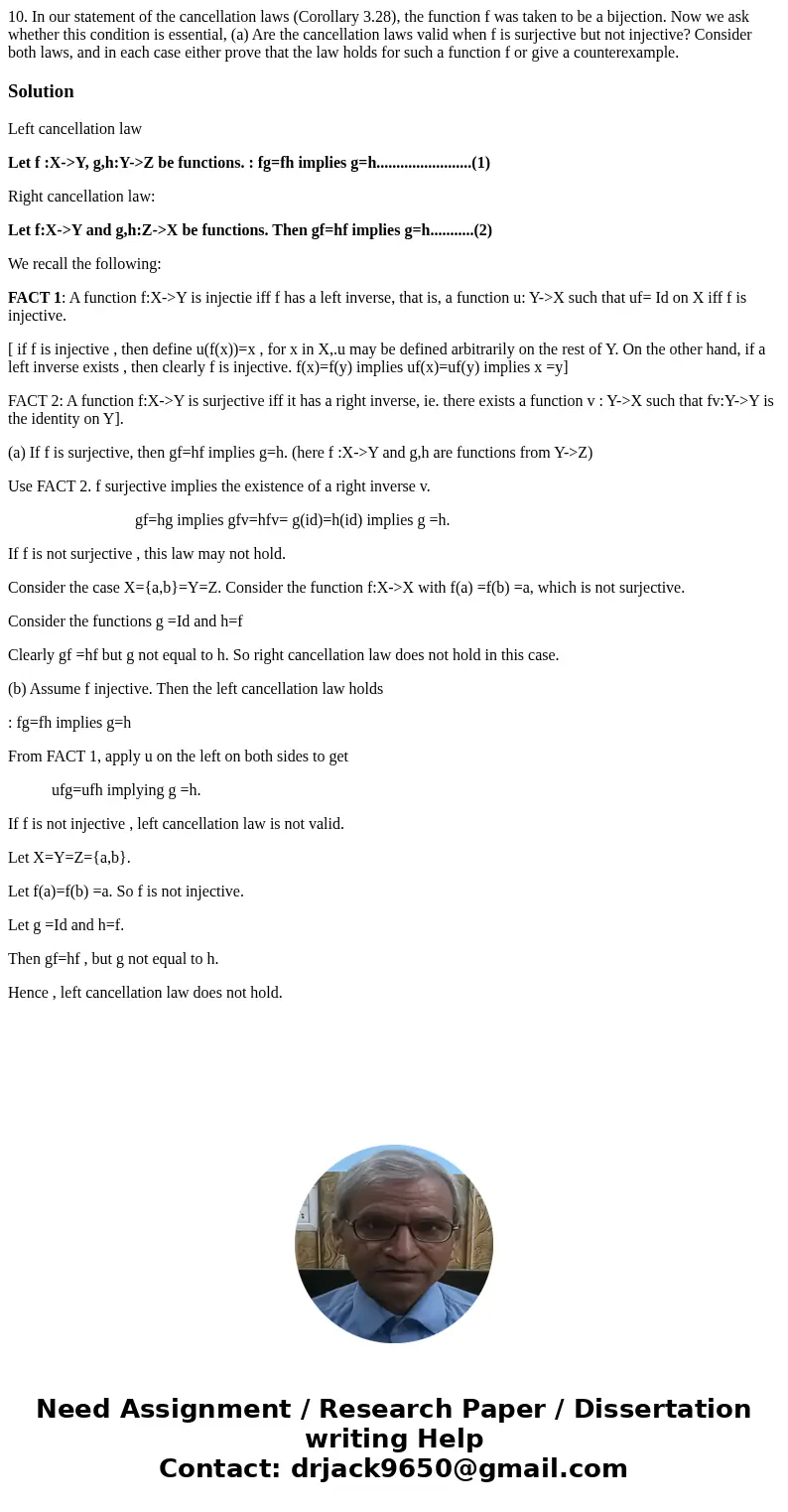10 In our statement of the cancellation laws Corollary 328 t
Solution
Left cancellation law
Let f :X->Y, g,h:Y->Z be functions. : fg=fh implies g=h........................(1)
Right cancellation law:
Let f:X->Y and g,h:Z->X be functions. Then gf=hf implies g=h...........(2)
We recall the following:
FACT 1: A function f:X->Y is injectie iff f has a left inverse, that is, a function u: Y->X such that uf= Id on X iff f is injective.
[ if f is injective , then define u(f(x))=x , for x in X,.u may be defined arbitrarily on the rest of Y. On the other hand, if a left inverse exists , then clearly f is injective. f(x)=f(y) implies uf(x)=uf(y) implies x =y]
FACT 2: A function f:X->Y is surjective iff it has a right inverse, ie. there exists a function v : Y->X such that fv:Y->Y is the identity on Y].
(a) If f is surjective, then gf=hf implies g=h. (here f :X->Y and g,h are functions from Y->Z)
Use FACT 2. f surjective implies the existence of a right inverse v.
gf=hg implies gfv=hfv= g(id)=h(id) implies g =h.
If f is not surjective , this law may not hold.
Consider the case X={a,b}=Y=Z. Consider the function f:X->X with f(a) =f(b) =a, which is not surjective.
Consider the functions g =Id and h=f
Clearly gf =hf but g not equal to h. So right cancellation law does not hold in this case.
(b) Assume f injective. Then the left cancellation law holds
: fg=fh implies g=h
From FACT 1, apply u on the left on both sides to get
ufg=ufh implying g =h.
If f is not injective , left cancellation law is not valid.
Let X=Y=Z={a,b}.
Let f(a)=f(b) =a. So f is not injective.
Let g =Id and h=f.
Then gf=hf , but g not equal to h.
Hence , left cancellation law does not hold.

 Homework Sourse
Homework Sourse